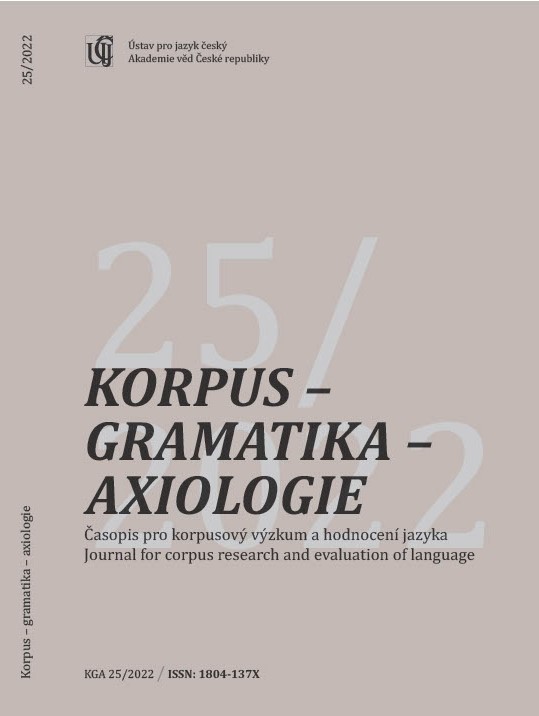Dlouhá nebo krátká? Korpusová analýza
verbálních substantiv na -ání a -aní
Long or short? A corpus analysis of verbal nouns ending in -ání and -aní
Author(s): Adrian Jan ZasinaSubject(s): Language studies, Applied Linguistics, Computational linguistics
Published by: AV ČR - Akademie věd České republiky - Ústav pro jazyk český
Keywords: vowel length; verbal nouns; morphology; corpus linguistics; Czech
Summary/Abstract: The present study attempts to comprehensively describe rules determining thechoice of long or short vowel in verbal nouns. The author focuses on the vowels a and á inverbal nouns ending in -ání or -aní that are not systematically described from a synchronouspoint of view. The distribution of these deverbatives is also confusing to learners. As a result,they are not able to differentiate between the two endings if they are not given any clear rules.Therefore, this analysis focuses on identifying the rules in use of analysed endings in the Czechlanguage based on data of contemporary written Czech in the SYN2015 corpus, with regard tolearners of Czech as a foreign language. The data has shown that the choice between the endings-ání or -aní is necessary only in the case of two-syllable verbal nouns; multi-syllable verbalnouns always end in -ání. The correct ending of a two-syllable noun can be identified based onthe infinitive of base verb. If the vowel is shortened in a prefixed infinitive (ex. psát → napsat)then the two-syllable noun has the ending -aní (ex. psaní). If there is no shortening (ex. tát →roztát), a two-syllable noun ends in -ání (ex. tání). The rules formulated in this way systematizethe hitherto confusing distribution of the endings -ání and -aní that can be considered asregular with regard to the most frequent verbal nouns. This knowledge can be further appliedin teaching of foreigners regarding creation of new teaching materials.
Journal: Korpus - gramatika - axiologie
- Issue Year: 2022
- Issue No: 25
- Page Range: 72-87
- Page Count: 16
- Language: Czech

